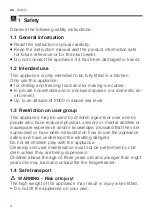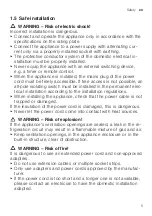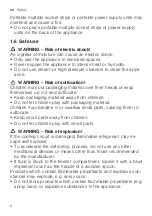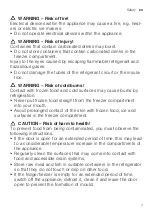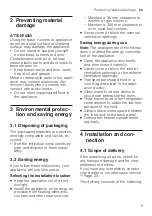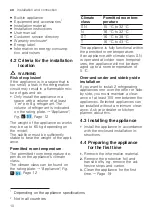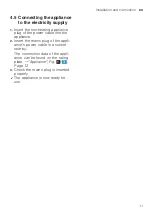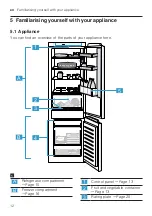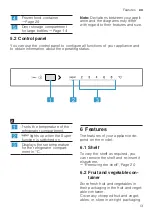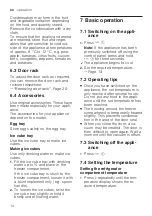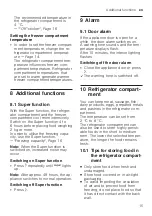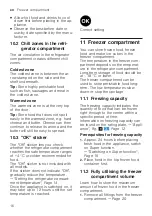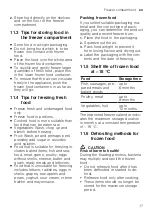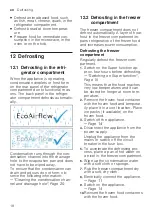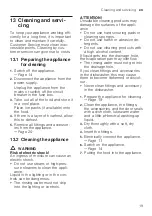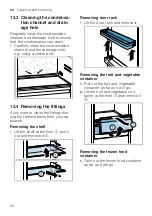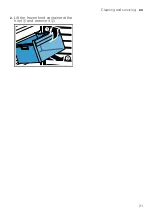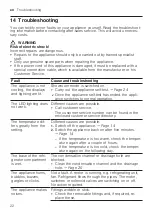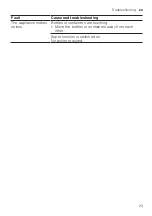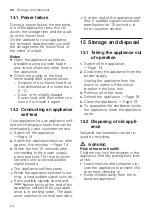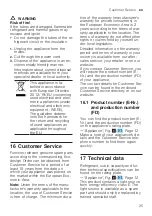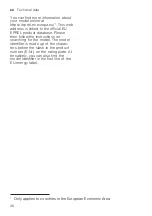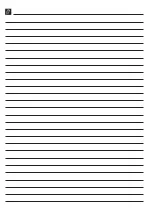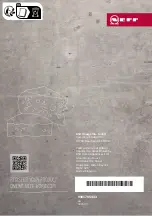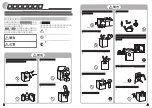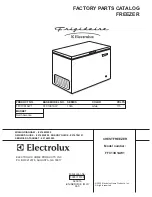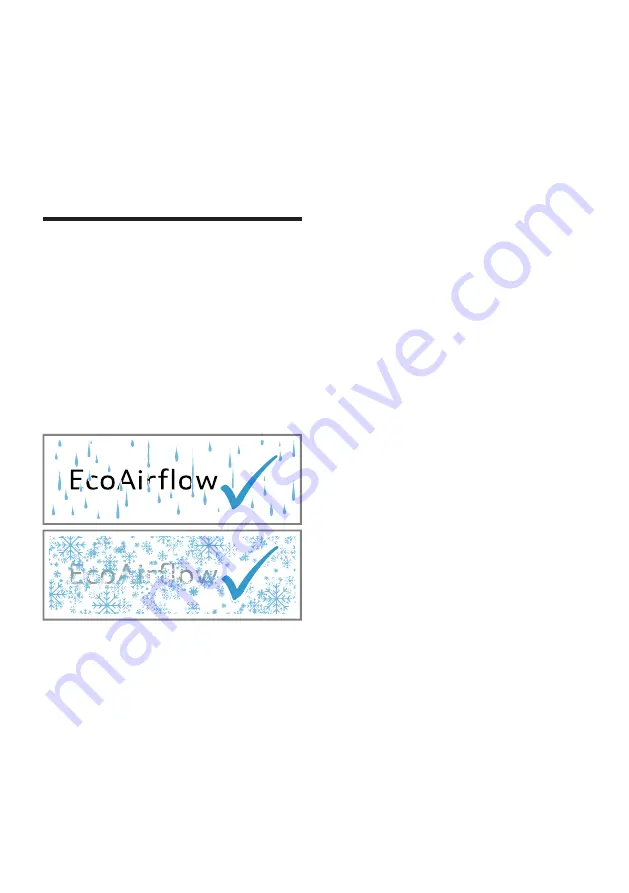
en
Defrosting
18
¡
Defrost animal-based food, such
as fish, meat, cheese, quark, in the
refrigerator compartment.
¡
Defrost bread at room temperat-
ure.
¡
Prepare food for immediate con-
sumption in the microwave, in the
oven or on the hob.
12 Defrosting
12.1 Defrosting in the refri-
gerator compartment
When the appliance is operating,
condensation droplets or frost form
on the rear panel of the refrigerator
compartment due to functional reas-
ons. The back panel in the refriger-
ator compartment defrosts automatic-
ally.
Condensation runs through the con-
densation channel into the drainage
hole to the evaporation pan and does
not have to be wiped away.
To ensure that the condensation can
drain and odours do not form, ob-
serve the following information:
→
"Cleaning the condensation chan-
nel and drainage hole", Page 20
12.2 Defrosting in the freezer
compartment
The freezer compartment does not
defrost automatically. A layer of hoar-
frost in the freezer compartment im-
pairs refrigeration of the frozen food
and increases power consumption.
Defrosting the freezer
compartment
Regularly defrost the freezer com-
partment.
1.
Switch on the Super function ap-
prox. four hours before defrosting.
→
"Switching on Super function",
This means that the food reaches
very low temperatures and it can
be stored for longer at room tem-
perature.
2.
Remove the frozen food container
with the frozen food and temporar-
ily place it in a cool location. Place
ice packs (if available) on the
frozen food.
3.
4.
Disconnect the appliance from the
power supply.
Unplug the appliance from the
mains or switch off the circuit
breaker in the fuse box.
5.
To accelerate the defrosting pro-
cess, place a pan of hot water on
a trivet in the freezer compartment.
6.
Wipe up the condensation water
with a soft cloth or sponge.
7.
Rub the freezer compartment dry
with a soft, dry cloth.
8.
Electrically connect the appliance.
→
9.
10.
Reinsert the frozen food containers
with the frozen food.

